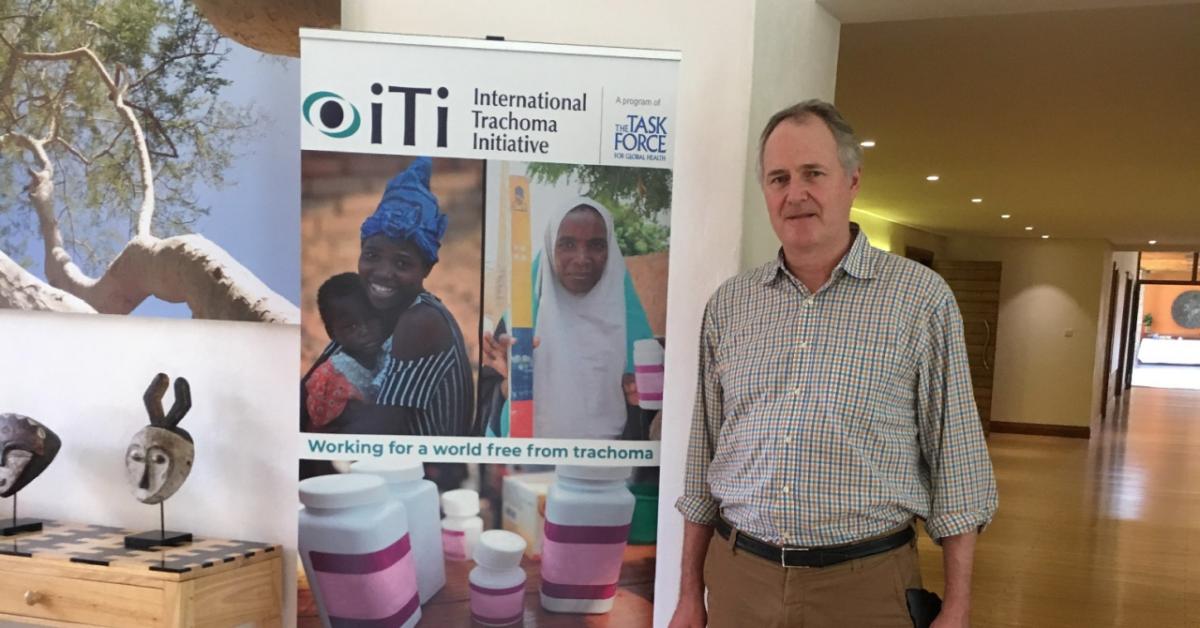A Family Legacy: Improving Global Public Health

When Dr. Charles A. Knirsch, MD, MPH, joined Pfizer more than 20 years ago, planning had just begun for a new partnership to eliminate trachoma, a neglected tropical disease and the world’s leading infectious cause of blindness.
“One of the early programs I worked on was development for Pfizer’s antibiotic that today is used to treat and prevent trachoma,” recalled Dr. Knirsch, vice president, Pfizer Worldwide Research and Development, and an infectious diseases researcher. “Given my background in public health, I was asked to be the scientific and regulatory lead for Pfizer for the new trachoma program.”
That program evolved into the International Trachoma Initiative, an independent nonprofit organization co-established by Pfizer in 1998. One of the key components of ITI’s holistic strategy to combat trachoma, known as SAFE (Surgery, Antibiotics, Facial Cleanliness and Environmental Improvements), is treatment with the same antibiotic that Dr. Knirsch worked on when he first joined Pfizer. The global implementation of the SAFE strategy has helped drive dramatic progress toward one day eliminating trachoma, and Pfizer has donated more than 730 million doses of the antibiotic through ITI to date.
Now, Dr. Knirsch and colleagues at Pfizer are supporting new research to explore the same antibiotic’s potential to improve child health. The New England Journal of Medicine (NEJM) recently published results from a study, led by scientists at the University of California, San Francisco (UCSF) and funded by the Bill & Melinda Gates Foundation, which found that giving a single dose of the antibiotic once every six months to children under five in Niger, Malawi, and Tanzania reduced the overall number of child deaths by 13.5 percent.
Pfizer, which donated the antibiotic and placebo for the study, will continue working with academic investigators, partner organizations and other stakeholders to further understand the antibiotic’s potential role in reducing child mortality around the world.
“Child mortality has been a really difficult area in global health. There are millions of children that die every year from preventable causes,” Dr. Knirsch said. “I think the excitement among the partners about this study speaks volumes to how important these results are, and where potentially they can lead.”
In fact, Dr. Knirsch’s connection to the antibiotic goes back even further. His father, who also worked in research and development at Pfizer, helped to design some of the first studies examining its potential effectiveness.
Since joining Pfizer, Dr. Knirsch has seen firsthand the role that interventions provided through the trachoma program, including antibiotics, can play in improving health in communities around the world. He recalled a trip to a remote village in Senegal, where observing the donation program brought to life the impact of the many individuals and partners who have been involved with ITI over the years.
The NEJM study results represent an exciting new area of research, Dr. Knirsch said, adding that he looked forward to helping find out where additional studies could lead.
“It’s really great to carry on work that was started by others,” Dr. Knirsch said. “Not just my father, but there are hundreds of people who have made this possible.
“It’s all about collaboration. Through public-private partnerships, we have the potential to take what we’ve learned and achieve the level of impact that we’re seeing with trachoma. I think something similar can play out in the future with regards to reducing child mortality around the world.”

